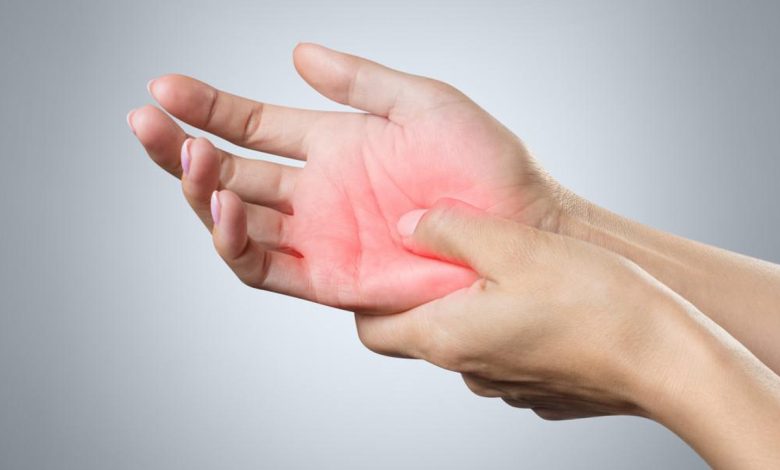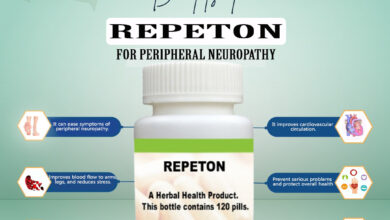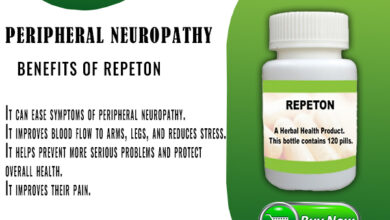Top Treatments for Peripheral Neuropathy: Get Relief Today!

Peripheral neuropathy is a condition that affects the nerves outside the brain and spinal cord, often leading to symptoms like pain, tingling, numbness, and weakness in the hands and feet. While it can be caused by various factors, including diabetes, infections, and injuries, finding effective relief is crucial for improving quality of life. We’ll explore the top Natural Treatments for Peripheral Neuropathy that can help you manage your symptoms and get relief today.
1. Alpha-Lipoic Acid (ALA)
Alpha-lipoic acid is a powerful antioxidant that has shown promise in relieving the symptoms of peripheral neuropathy, especially in diabetic patients. ALA helps to reduce oxidative stress, which can damage nerve cells, and improve nerve function. Taking ALA supplements daily can provide significant relief from pain, burning sensations, and numbness associated with neuropathy.
2. Acupuncture
Acupuncture is a traditional Chinese medicine practice that involves inserting thin needles into specific points on the body. This treatment can stimulate nerve pathways and promote healing. Several studies have shown that acupuncture can help reduce pain and improve nerve function in individuals with peripheral neuropathy. It’s a safe and effective natural treatment for managing neuropathy symptoms.
3. Herbal Supplements for Peripheral Neuropathy
Herbal supplements can be an excellent addition to your treatment plan for peripheral neuropathy. Herbs like St. John’s Wort, turmeric, and evening primrose oil have been used for centuries to alleviate nerve pain and inflammation. St. John’s Wort is known for its nerve-soothing properties, while turmeric is a potent anti-inflammatory that can help reduce swelling and pain. Evening primrose oil contains gamma-linolenic acid (GLA), which can improve nerve function and reduce neuropathic pain.
4. Capsaicin Cream
Capsaicin, the active ingredient in chili peppers, has been found to reduce pain by depleting a neurotransmitter called substance P, which transmits pain signals to the brain. Capsaicin cream can be applied topically to the affected areas, providing relief from the burning and tingling sensations often experienced with peripheral neuropathy. Regular use can help diminish pain over time.
5. Exercise
Regular physical activity is vital for improving circulation and reducing neuropathic pain. Exercise helps to strengthen muscles, maintain healthy blood sugar levels, and improve nerve function. Low-impact activities like walking, swimming, and yoga can be particularly beneficial for those with peripheral neuropathy. Always consult with a healthcare professional before starting a new exercise regimen.
6. Essential Oils
Essential oils like lavender, peppermint, and eucalyptus are known for their calming and analgesic properties. Massaging these oils into the affected areas can provide relief from pain and improve circulation. Lavender oil is especially effective for its soothing effects, while peppermint oil can offer a cooling sensation that helps alleviate pain.
7. Vitamin B Supplements
A deficiency in certain B vitamins, particularly B12, can contribute to nerve damage and exacerbate neuropathy symptoms. Taking a vitamin B complex supplement can help restore nerve health and reduce symptoms like tingling, numbness, and weakness. Be sure to choose a high-quality supplement and consult with your healthcare provider to ensure you’re getting the right dosage.
8. Dietary Changes
A diet rich in nutrients that support nerve health can play a crucial role in managing peripheral neuropathy. Incorporating foods high in omega-3 fatty acids, such as fish, flaxseeds, and walnuts, can help reduce inflammation and support nerve repair. Additionally, foods rich in antioxidants, like berries, leafy greens, and nuts, can protect nerve cells from damage.
9. Mind-Body Techniques
Stress and anxiety can worsen neuropathy symptoms, so managing stress is essential for overall health. Techniques like meditation, deep breathing exercises, and progressive muscle relaxation can help calm the mind and reduce the perception of pain. Regular practice of these mind-body techniques can enhance your overall well-being and make it easier to cope with neuropathy.
10. Herbal Supplement for Peripheral Neuropathy: Considerations
When choosing an Herbal Supplement for Peripheral Neuropathy, it’s important to consider quality, potency, and safety. Always purchase supplements from reputable sources and consult with a healthcare provider before starting any new herbal regimen. Herbs like ginkgo biloba, cayenne pepper, and valerian root are also known for their potential to improve nerve function and reduce pain.
Conclusion
Peripheral neuropathy can be a challenging condition to manage, but with the right natural treatments, relief is possible. By incorporating a combination of dietary changes, herbal supplements, physical activity, and mind-body techniques, you can take control of your symptoms and improve your quality of life. Always consult with a healthcare professional before beginning any new treatment plan to ensure it’s safe and appropriate for your individual needs.




